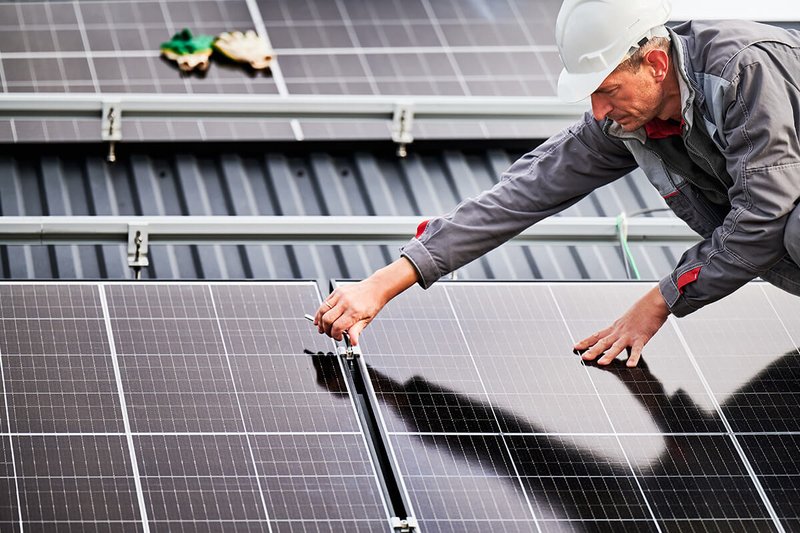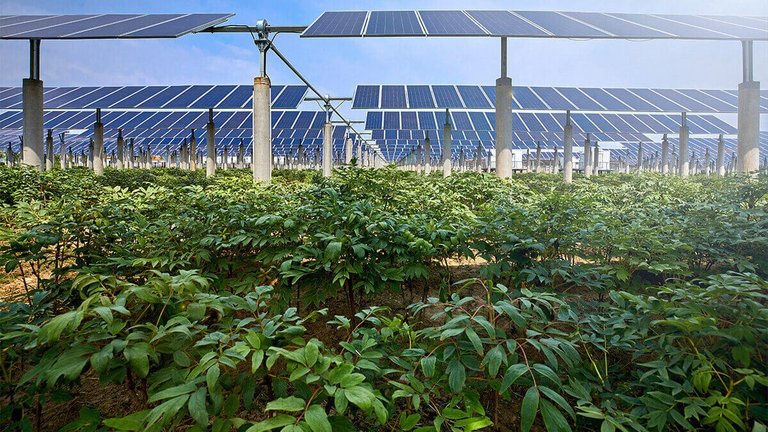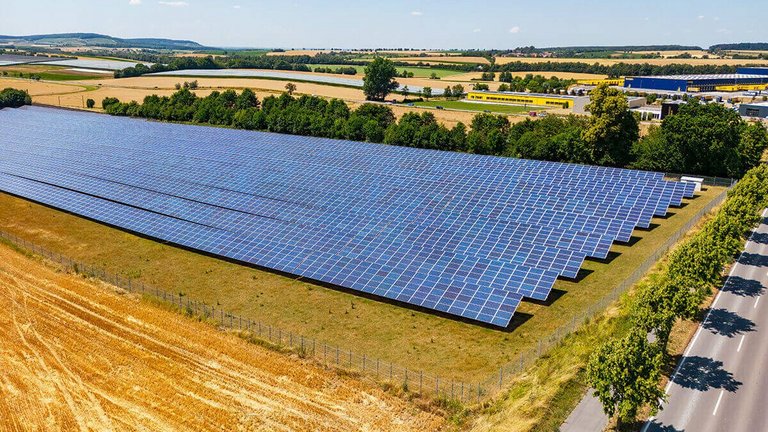Photovoltaic systems (PV) and battery storage systems pay off. On the one hand, costs for the technology have gone down significantly, while on the other hand, electricity prices have increased. Therefore, the investment often amortises in just a few years. Depending on the location of the solar panels, farmers can even benefit twice.
Double harvest
Maximising land use with agrivoltaics or ground-mounted PV systems
Agrivoltaic systems allow the double use of agricultural areas. For instance, producers of free range eggs can equip the range with ground-mounted solar panels. Sheep and suckler cows can also be kept under agrivoltaic systems. Another option is the cultivation of fruit and berry bushes, vegetables or even wine.
Generating energy in this manner, farmers create additional income or can significantly reduce their own energy costs.
Ground-mounted PV systems pay off in many locations. Examples are conversion areas such as former military bases and waste disposal sites, marginal strips of roads as well as rewetted peatlands and car parks. Ground-mounted solar panels can even be beneficial on arable land. Germany’s main environmental protection agency UBA estimates that each hectare of photovoltaics can generate 40 times more power than maize in a biogas plant.
Investors should always contact an experienced partner who will accompany them through the still challenging planning and installation process. Suppliers such as Big Dutchman, which have years of experience with PV systems, will install the solar panels with their own professional team as a turn-key project, for example.
Requests for grid connection and certification, connection to the house or farm grid as well as the DC to AC conversion can all be part of such a project. Even special requirements, e.g. transformer requests or roof renovations, are possible. These turn-key solutions are a great support for customers because they have a single and reliable contact, from planning all the way to commissioning.
The PV system’s profitability can be optimised as early as during the planning phase thanks to state-of-the-art technologies. Torben Witte, PV expert for Big Dutchman, explains: “Our special simulation software is able to design a PV system that perfectly meets the customer’s requirements and conditions.” Degrees of self-sufficiency can be calculated very accurately, based on specific load profiles and local weather data.
Drones create 3D visualisations of possible installation locations. “We can simulate potential shading and use this information to arrange the solar panels in the ideal way,” says Witte. This precision during planning leads to a maximum energy yield.
The PV system needs to consist of both powerful and reliable components. Big Dutchman, for example, uses high-quality inverters that allow for constant monitoring, and solar panels of the latest generation. Various substructures are available for PV systems: solar panel tables so the modules can be moved with the sun, vertical posts to guarantee access for vehicles, or roofs that protect plants from too much sunlight.
For investors with a high self-consumption, extremely powerful battery storage solutions ideally complement agrivoltaics or ground-mounted PV systems. Big Dutchman offers modular battery storage systems with emergency power options that have a very high charging and discharging power. The storage systems can be supplied in containers and have been specifically adapted for agricultural applications, allowing farmers to balance load peaks and to increase their overall solar coverage rate – until the farm is self-sufficient, if requested.



